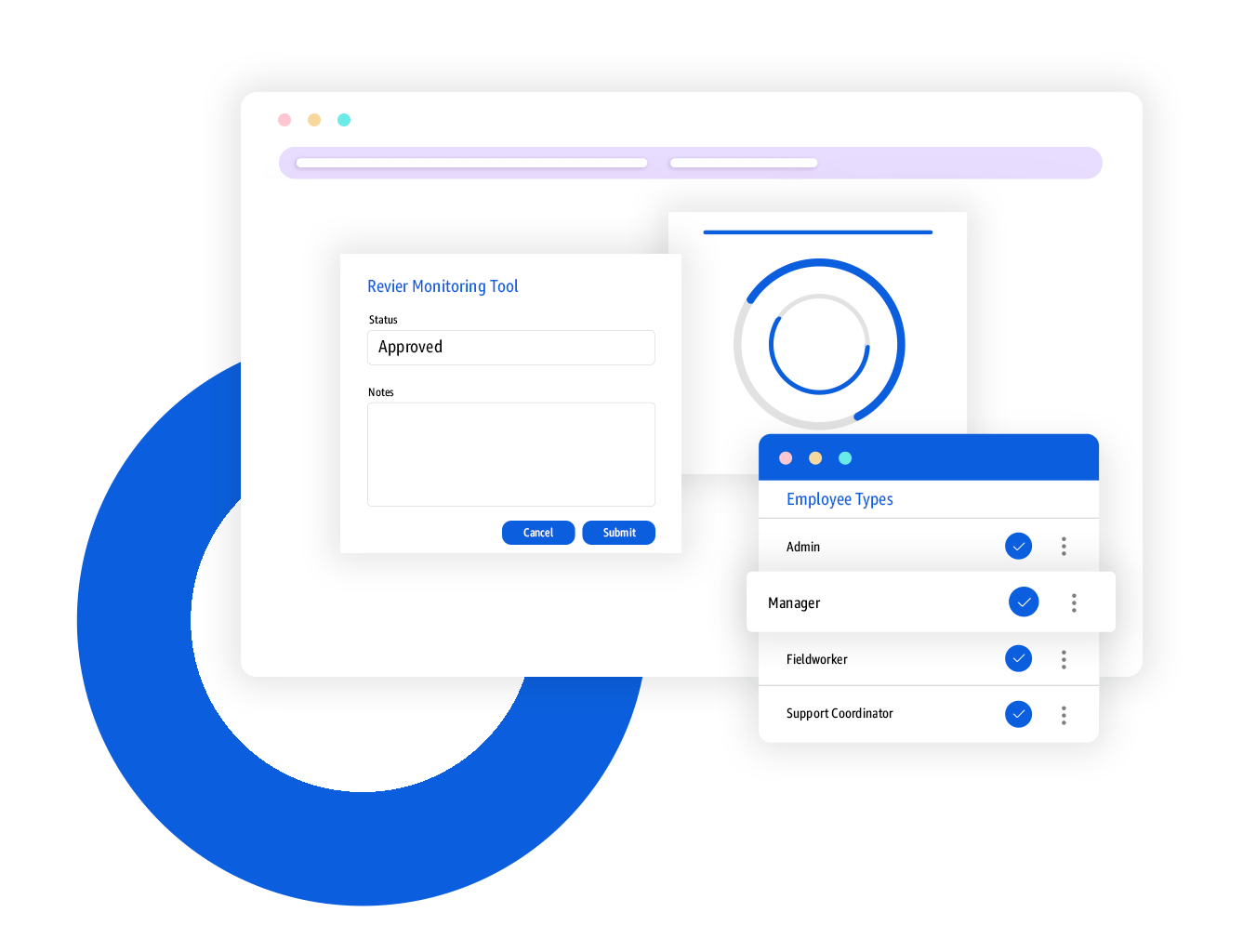There’s no denying that burnout is a buzzword right now – especially for those in social care, it has become a hot topic since COVID began, with many existing challenges amplified by the pandemic situation.
However, with burnout being mentioned so often, it can be all too easy to lose sight of what it actually means and how it impacts us.
What exactly is burnout?
As the name suggests, burnout refers to a state of absolute exhaustion, where a person literally feels burnt out physically, emotionally and mentally, and struggles to find energy for anything in their day-to-day lives.
It’s more than just stress, typically affecting those who are under a lot of stress for long periods of time. This can be a result of having to constantly meet a lot of demands as well as coping with uncertainty.
For social workers, care coordinators and agency management, it’s not surprising that burnout has become a big issue that needs to be addressed. Delivering care to some of the most vulnerable members of our society is extremely fulfilling, however, it can also be emotionally taxing and stressful, especially when you consider the amount of additional paperwork and complicated processes that exist in the care delivery pipeline beyond simply helping patients.
COVID brought about massive changes for the industry, with a sudden shift towards remote care and an acceleration in the trend towards home-based care, representing a lot of change and uncertainty for those in the field during this time on top of the pandemic changing the way that we all live outside of our daily work.
With an emphasis on caring for others and so much uncertainty and change, it’s no surprise that so many working in care are feeling burned out.
How can we prevent burnout?
While we can’t solve all the pandemic-related problems and simplify all the required paperwork needed, there are some ways you can help yourself and your team feel more able to manage their workload and avoid becoming stressed to the point of burnout.
Here are some of our tips…
Don’t work longer – work smarter.
As busy people, whenever we feel stressed out by the amount of work we have to do, there can be a tendency to think we need to put in more hours, working later and later to get everything done. This inevitably leads to a complete lack of any work-life balance and less time to destress outside of work.
However, it’s precisely in this state that it helps to take half an hour to take a step back from work and critically think about the whole picture – what needs to be done? Who in your team is working on what? What needs to be prioritized, and what, if anything, can wait? Taking this brief moment to step back from being in so-called “action” mode can give you the headspace you need to find ways to make small changes to your processes or delegation and make a mountain of work easier to get through.
Additionally – as a technology company aiming to empower those working in care – we know how much technology can help, especially with certain manual processes. For example, FieldWorker acts as a centralized hub for all an agency’s records and patient data, giving the whole team access to whatever they need at the moment they need it without having to sift through paperwork or disorganized files. If you find yourself spending time chasing after information, consider whether software could help save you that time.
Make the complicated simple.
One way of identifying ways to work smarter is to look at your most time-consuming processes. Of course, some tasks just take a long time, but if you notice there are tasks that your team often leaves to the end of the week to complete, consider whether setting aside an hour for your team to all come together and complete the task together could help, in addition to providing a time where your team can help each other out if need be.
Again here, there might be technology that can help your team accomplish these complicated tasks more simply. For example, FieldWorker has an in-app feature that allows field workers to dictate their case notes by voice, which speeds up the process and makes it possible to update case notes from the field directly after a visit.
Prioritize order to boost productivity.
When we are in “action” mode, a singular focus on just getting things done can make it easy to ignore where things may not be in order. Maybe there are files in the wrong place, or you don’t know what’s up to date and what’s not.
Again, if this is the case, it can be worth the time taking a half an hour break from the action to prioritize some spring cleaning. Spend half an hour reorganizing that one pile of files on your desk, updating the status of your teams’ ISPs, catching up on the status of various in-progress projects.
Psychologically speaking, you’ll feel better for it – working in an ordered environment can actually boost your productivity, so that half-hour of organization may be worth much more than you initially think.
Foster synergy within your team.
In any team of stressed-out individuals, there’s often the tendency for work to become siloed. That means individuals may be focusing purely on the mountain of work they need to accomplish, but this may also mean that they miss out on opportunities when colleagues could help.
It’s becoming increasingly common for teams to use tools such as Slack and Microsoft Teams for the team to chat – and encouraging your team to say “good morning” and “goodbye” at the beginning and end of their workday in addition to a line about what’s on their schedule for the day can help remind everyone that firstly, you’re a team, especially if you’re working from different locales, and seconds, help your team see who’s doing what and identify chances to help each other out.
Continuing the tech trend, purpose-built case management software such as FieldWorker can help with collaboration as well, giving you the chance to delegate tasks to various team members and share updates on cases with each other with ease.
And finally – recognize each other!
Whenever there’s something to recognize a colleague for, make sure you do so! Send a message of appreciation, congratulate colleagues on victories of all sizes, and say thank you often.
It may not make the work at hand any easier, but it reminds your team that the work they do is important and appreciated.
Share your tips!
We’re a community, after all! How do you and your team combat burnout?
And if you want to learn more about how case management software such as FieldWorker can help transform the way you and your team work and stop burnout in its tracks, try it out for yourself for free here.

